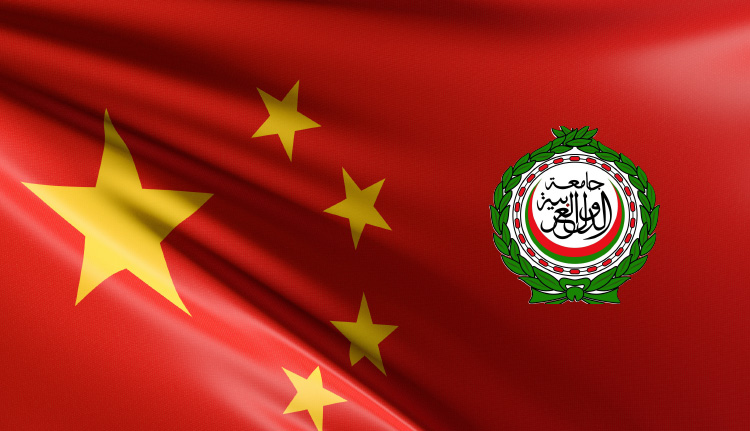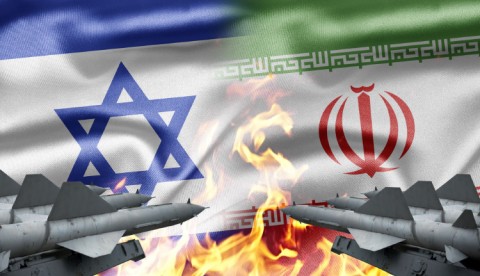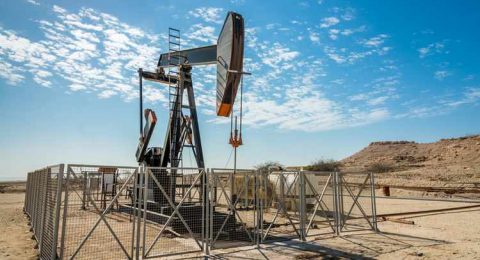The latest China-Arab Forum has revealed a significant evolution in the political and economic dynamics between China and the Arab world, underscoring not only their shared political stances, but also an ambitious agenda to deepen economic cooperation, particularly in the energy sector. This shift signals a transformative phase in China-Arab relations, with a focus extending beyond traditional oil and gas transactions to embrace energy transition and renewable energy initiatives.
Trade Growth and Economic Ties
Trade between China and the Arab countries has seen robust expansion since the establishment of the China-Arab States Cooperation Forum 20 years ago. According to China’s General Administration of Customs (GAC), the total goods trade volume between China and Arab League members surged to 2.8 trillion yuan (approximately $393.75 billion) in 2023, a staggering 820.9% increase from 303.81 billion yuan in 2004. This upward trajectory continued in the first four months of 2024, with imports and exports reaching a historic high of 946.17 billion yuan, accounting for 6.9% of China’s total foreign trade value.
The United Arab Emirates, Iraq, Oman, Qatar, Egypt, and Saudi Arabia are the top six trade partners in the Arab League; the imports from these countries add up to 84.8% of the total China-Arab trade. China has emerged as the biggest source of automobile imports, and even of textiles and garments imports, to the Arab League.
Energy Cooperation: Beyond Oil and Gas
Energy trade remains a cornerstone of China-Arab relations, with the Arab League being China’s largest source of energy products. In the first four months of 2024, China imported 397.29 billion yuan worth of energy products from the Arab League, accounting for 38% of China’s total energy product imports. However, the recent forum highlighted a mutual desire to expand cooperation beyond oil and gas, focusing on energy transition and renewable energy.
Chinese President Xi Jinping emphasized the integration of supply security with market security and expressed China’s readiness to collaborate on new energy technology research and development, as well as equipment production. China pledged support for its energy companies and financial institutions to participate in renewable energy projects in Arab states, aiming for a total installed capacity of over three million kilowatts.
Strategic Mutual Trust and Practical Cooperation
The forum underscored four key tasks for China-Arab cooperation, as outlined by Chinese Foreign Minister Wang Yi: strengthening strategic mutual trust, deepening practical cooperation, enhancing international coordination, and building a community of shared destiny. These objectives reflect the comprehensive and strategic nature of China-Arab relations, which have evolved significantly over the past two decades.
China and Arab countries have established comprehensive strategic partnerships with four Arab nations—Egypt, Algeria, Saudi Arabia, and the United Arab Emirates—and strategic partnerships with ten others, including Qatar, Iraq, and Jordan. The Belt and Road Initiative (BRI) has been instrumental in this expansion, fostering deeper economic integration and cooperation in various sectors, including the digital economy, finance, new infrastructure, and clean energy.
During the 10th ministerial meeting of the forum, held in Beijing, China signed numerous bilateral and multilateral cooperation documents with participating countries and the General Secretariat of the Arab League. These agreements are designed to strengthen economic and trade relations, particularly in the financial and energy sectors, thus contributing to global economic recovery.
Experts and business leaders at the forum emphasized the potential for further deepening economic ties. Mohammed Al Ajlan, chairman of the Saudi-Chinese Business Council, highlighted in statements to media, opportunities arising from China’s focus on high-end manufacturing and the digital economy. Li Lei, vice-president of Saudi Basic Industries Corp, noted that new cooperative initiatives would benefit global trade and create new growth points for Arab companies.
Trade growth is also reflected in cultural exchanges and consumer trends. Arab products such as Egyptian oranges, Syrian rose essential oil, Tunisian olive oil, and Saudi dates are increasingly popular among Chinese consumers. Conversely, Chinese-made new energy vehicles, home appliances, and smartphones are finding their way into more Arab homes, exemplifying the complementary nature of the industrial structures of China and the Arab world.
Political Support and Humanitarian Aid
The forum also addressed pressing political issues, with participants expressing deep concerns over the ongoing conflict in Gaza. President Xi reiterated China’s support for Palestine’s full membership in the United Nations and called for an effective international peace conference to resolve the conflict. Additionally, China announced a humanitarian aid package of 500 million yuan (approximately $69 million) for Gaza and pledged to donate $3 million to the UN Relief and Works Agency.
The future of the China-Arab cooperation appears promising as the latest China-Arab Forum has not only reaffirmed the strong political and economic ties between China and the Arab world, but also set the stage for a new era of cooperation focused on energy transition and sustainable development. This strategic partnership, grounded in mutual benefit and shared goals, is poised to make significant contributions to global economic stability and growth.








